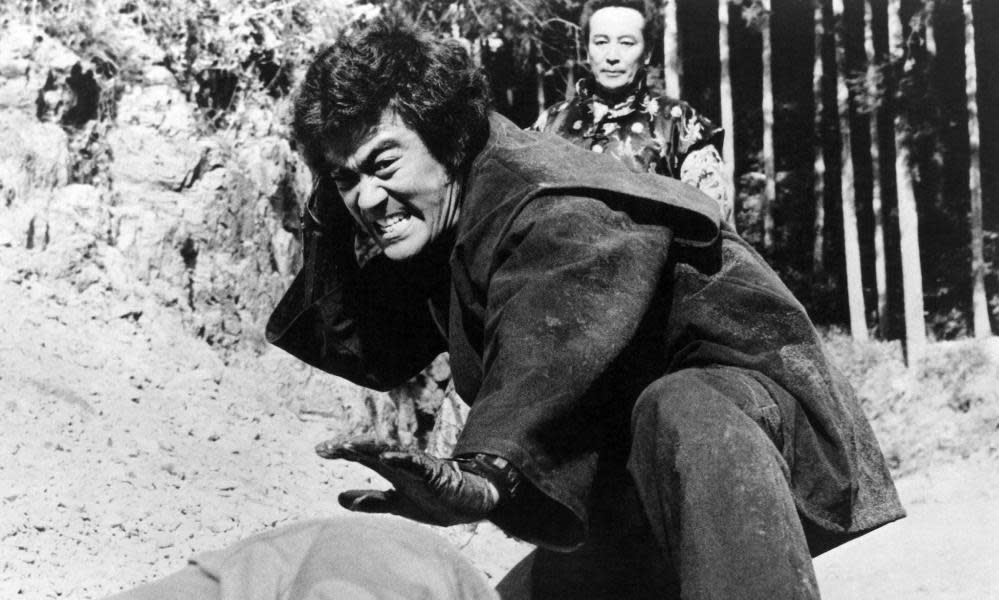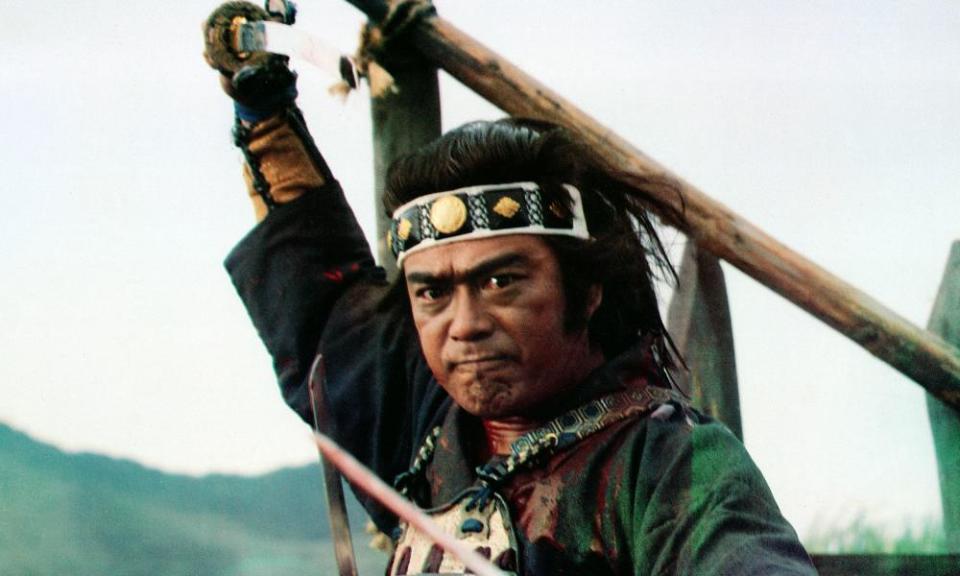Sonny Chiba obituary

In the early 1990s Quentin Tarantino helped extend Sonny Chiba’s appeal beyond the martial arts enthusiasts who had admired the actor’s work for decades. Chiba, who has died aged 82 from Covid-19, had already made more than 120 movies by that point. But it was in Tarantino’s screenplay for True Romance (1993), directed by Tony Scott, that many western viewers first heard his name.
Clarence, the amiable hero played by Christian Slater, declares Chiba to be “bar none, the greatest actor working in martial arts movies today”. He then spends his birthday watching a triple-bill of the actor’s explosively violent films.
That mention in True Romance foreshadowed Chiba’s appearance in Tarantino’s martial arts thriller Kill Bill: Vol 1 (2003). As the swordsmith Hattori Hanzo (the name is Tarantino’s tribute to characters played by Chiba in the 80s TV series Shadow Warriors), he fashions for the Bride (Uma Thurman) a katana in preparation for a revenge mission. “Revenge is never a straight line,” he tells her. “It’s a forest. And like a forest it’s easy to lose your way, to get lost, to forget where you came in.”
A veteran of Japanese film and television dating back to the early 60s, Chiba had relocated to the US in the mid-90s. “I felt that Japanese cinema was declining in quality and I wanted to come to Hollywood to re-establish myself,” he said in 2003. His Hollywood career included Immortal Combat (1994), in which he was paired with the wrestling star “Rowdy” Roddy Piper, and the car chase sequel The Fast and the Furious: Tokyo Drift (2006).
His talents were best utilised, though, in the homegrown hits that showcased his distilled fighting style: jerky, economical, sadistic. There was also his Steve McQueen-like cool to reckon with. One combat scene in the bizarre action-horror hybrid Wolf Guy (1975) takes place in an alley, where the fisticuffs and karate kicks are watched over approvingly by a giant poster image of McQueen.
In Chiba’s international breakthrough, The Street Fighter (1974), he plays a mercenary who takes on Yakuza thugs. The film, which became a success on the back of Bruce Lee-inspired martial arts fever, features some of the genre’s most extreme brutality. Cinema marquees in the US tempted viewers by promising the “first X-rated fight scenes in screen history”.
In one part of the film, Chiba tears off an adversary’s testicles, then brandishes the resulting handful of flesh and bloody underwear. In the final confrontation in a rain-swept shipyard, he goes for the throat, presenting his assailant’s vocal cords for the camera’s inspection. “I came out of the theatre sick to my stomach at the thought of any child being allowed to see what I had just seen,” wrote Gerald Jonas in the New York Times.
The shock value is tempered somewhat by Chiba’s cartoonish indestructibility. Tied to a pole and beaten savagely, he scarcely turns a hair. When his car is dropped from a great height with him inside, he comes out kicking.
There was innovation in The Street Fighter, too, most notably in the unforgettable moment, conceived by Chiba, in which he punches an opponent on the top of the head. This is followed by a cut to X-ray footage of the skull fracturing before the film reverts to colour to show the victim expiring messily.
Chiba’s presence alone is something to behold. His concentration is so fierce, his stare so pitiless, that it seems churlish to ask why his attackers invariably stand around waiting politely for their turn to fight him, rather than piling in all at once and getting the job done pronto. Even his enemies, it seems, respect him enough not to cramp his style.
He was born in Fukuoka, his father a pilot, his mother a former athlete. He trained as a gymnast as a child, and was on course to compete in the Japan Olympics team until a hip injury at the age of 20 while working in construction put paid to the idea. He enrolled at the Nippon Sport Science University, and studied under the karate master Masutatsu Oyama, receiving his black belt in 1965. He later played Oyama in three films, beginning with Champion of Death, also known as Karate Bullfighter, one of nine features he made in 1975 alone.
After being discovered by the Toei studio in a talent competition, he assumed his screen name, Shin’ichi Chiba, and starred in numerous television series and films, beginning inauspiciously with B-movies such as Invasion of the Neptune Men (1961) and Terror Beneath the Sea (1966).

He was at his most menacing as a young gangster in Hiroshima Death Match (1973). “I wanted to make myself into an ugly human being,” he said. That picture was directed by Kinji Fukasaku, a trusted collaborator since the early 60s. Their first films together, Chiba later said, “were instrumental in creating the skeletal bone structure of my acting in movies”.
They went on to make the delightful Doberman Cop (1977), in which Chiba is unusually goofy as an out-of-town police officer who arrives in Tokyo carrying a pet pig and wearing a straw hat. They also teamed up for Message from Space (1978), an attempt to capitalise on the popularity of Star Wars.
The success of The Street Fighter led to sequels and spin-offs in which Chiba also appeared: Return of the Street Fighter, The Street Fighter’s Last Revenge, Sister Street Fighter (all 1974). He enjoyed more recent success in the Chinese period adventure Storm Riders (1998) and its television spin-off Wind and Cloud (2002), in which he played the Lord Conqueror, who kidnaps a pair of young disciples in his quest for invincibility. “Chiba evinces real authority as the all-powerful villain,” noted Variety magazine.
Altogether more effusive was another of his celebrity fans, the actor Keanu Reeves. The star of the Matrix and John Wick action franchises became visibly overwhelmed during a televised meeting with Chiba in 2019, referring to him as “the maestro.”
Chiba’s first marriage, to the actor Yōko Nogiwa, ended in divorce in 1994. He is survived by his daughter from that marriage, Juri, as well as by Mackenyu and Gordon, his children from his second marriage, to Tatami, which ended in divorce in 2015.
• Shin’ichi “Sonny” Chiba (Sadaho Maeda), actor, born 22 January 1939; died 19 August 2021

 Yahoo Movies
Yahoo Movies 
